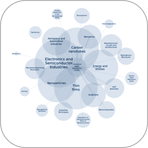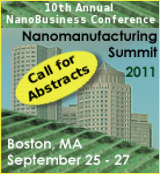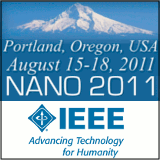Effectively Managing the Risks of Nanomaterials: Present Status and Future Challenges 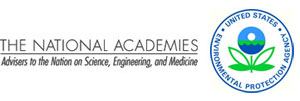
Nanomaterials represent the building blocks of nanotechnology-enabled products and applications encompassing a broad range of substances and structures having features in the 1-100 nanometer range. Nanomaterials are of significant interest as they exhibit enhanced physical, chemical and electronic properties in comparison to their bulk counterparts. They can impact a range of applications including energy, electronics, agriculture, transportation, and healthcare, with the potential for pronounced societal and economic benefit. Yet the significant societal benefits offered by nanomaterials are not without possible drawbacks as the impact of exposure on human health and environment is presently unclear. While it is documented that significant and excessive exposure to certain types of nanomaterials can be hazardous to human health there are no data linking these exposure levels to realistic exposure conditions for responsible product manufacturing or product life-cycle.
More....
Regards,
National Nanomanufacturing Network
Learn More about the 
Voltage Controlled Drug Release from Nanoparticles for Hybrid Smart Drug Delivery Systems 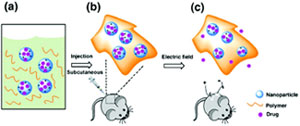 Stimulus-responsive biomaterials are of significant interest as in vivo drug delivery systems. Such materials provide a means for controlled and long-term drug release as new treatments for a range of chronic diseases that require daily injections or precise doses of specific medications. Various materials systems investigated to date have exhibited response to heat, light, pH, enzymes, ultrasonic waves, and magnetic fields. While some interesting performance has been reported utilizing these stimulus methods, activation of these materials typically requires large or specialized equipment. In comparison, electric-field stimulus is much simpler to generate and control. Electrical signals have been shown to release molecules via conducting polymeric bulk materials or implantable electronic delivery devices, yet often require invasive surgery to implant and activate the devices. In order to implement electrically activated drug delivery, a technique is required that encapsulates the drug compound in a platform suitable for injection to a specific locale where the release can be triggered. More.... Stimulus-responsive biomaterials are of significant interest as in vivo drug delivery systems. Such materials provide a means for controlled and long-term drug release as new treatments for a range of chronic diseases that require daily injections or precise doses of specific medications. Various materials systems investigated to date have exhibited response to heat, light, pH, enzymes, ultrasonic waves, and magnetic fields. While some interesting performance has been reported utilizing these stimulus methods, activation of these materials typically requires large or specialized equipment. In comparison, electric-field stimulus is much simpler to generate and control. Electrical signals have been shown to release molecules via conducting polymeric bulk materials or implantable electronic delivery devices, yet often require invasive surgery to implant and activate the devices. In order to implement electrically activated drug delivery, a technique is required that encapsulates the drug compound in a platform suitable for injection to a specific locale where the release can be triggered. More....
The Nano-economy: Time to Reap the Rewards  20+ years of planting seeds -- now a crop of jobs is ready. 20+ years of planting seeds -- now a crop of jobs is ready.
In a recent speech I made to business leaders in Boston, I explained that perched atop 26 years of experiences I've stacked up in nanobusiness, I have a pretty good view to the horizon. You know what I see? Decades of investment by government and the private sector have grown into a field of economic opportunity, now ripe with good jobs.
Better yet, I see the harvesting equipment has just been delivered: the Advanced Manufacturing Partnership. It's a new public-private consortium charged with investing more than $500 million in nanotechnology and other emerging technologies. The goal? Convert scientific knowledge to factory floor output -- and high quality jobs -- faster.
Business builders like Dow, Ford, and Proctor and Gamble have come to the table with MIT, Stanford and other universities, to join with the National Economic Council, Office of Science and Technology Policy and the President's Council of Advisors on Science and Technology. More...
New Research Consortium to Develop Advanced Materials for Next-Generation Airbus Aircraft  U.S. Sen. Sherrod Brown (D-OH), Airbus Americas Chairman Allan McArtor, and Lisa Novelli, President of the National Composite Center (NCC) announced the establishment of a new aerospace research and development consortium. The five-year agreement, announced today at NCC, is aimed at strengthening Ohio's aerospace industry and boosting economic development throughout the state. Brown, McArtor, and Novelli were joined by Lance Criscuolo of Zyvex Technologies, a company in Columbus that will develop and commercialize advanced materials for next generation Airbus aircraft. U.S. Sen. Sherrod Brown (D-OH), Airbus Americas Chairman Allan McArtor, and Lisa Novelli, President of the National Composite Center (NCC) announced the establishment of a new aerospace research and development consortium. The five-year agreement, announced today at NCC, is aimed at strengthening Ohio's aerospace industry and boosting economic development throughout the state. Brown, McArtor, and Novelli were joined by Lance Criscuolo of Zyvex Technologies, a company in Columbus that will develop and commercialize advanced materials for next generation Airbus aircraft.
"This is about creating jobs by making Ohio Airbus' home in the U.S. Ohio is an aerospace leader because of our innovative businesses, world-class universities, and skilled, dedicated workforce," Brown said. "This new agreement builds on Airbus' commitment to our state, gives Ohio companies new opportunities to develop cutting-edge aerospace materials, and sends Ohio-born next-generation technologies to market worldwide."
More....
Read more on  | 


Advertisements 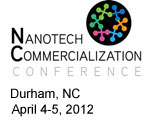

Job Opportunities Process Engineer Mgr, SRI International Development Engineer Chemical Mechanical Polishing, Imec Experienced Researcher III-V Epitaxial Growth, Imec Upcoming Events Februrary 5-9, 2012
2012FLEX - Flexible Electronics & Displays February 7-9, 2012
1st Intl Nanostructures & Nanomaterials: Science & Applications March 28-29, 2012
NanoManufacturing Conference & Exhibits April 4-5, 2012
Nanotech Commercialization Conference View Full Calendar Upcoming Calls SPIE NanoScience & Engineering
Submissions accepted until January 30, 2012 SPIE Optics & Photonics 2012
Submissions accepted until January 30, 2012 NanoManufacturing Conference & Exhibits
Submissions accepted until: Februrary 1, 2012 Graphene 2012
Submissions accepted until Februrary 10, 2012 View All Calls Advertisements 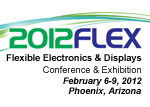

Recently Published
From Our Affiliates Rheology and nanostructure of hydrophobically modified alginate (HMA) gels and solutions
Carbohydrate Polymers 87(1): 524-530 Rapidly optimizing an aptamer based BoNT sensor by feedback system control (FSC) scheme <br > Biosensors & Bioelectronics 30(1): 174-179 Design, Assembly, and Activity of Antisense DNA Nanostructures <br > Small 7(24): 3529-3535 Low-Temperature Deposition of Undoped Ceria Thin Films in scCO(2) As Improved Interlayers for IT-SOFC
<br > Chemistry of Materials 23(24): 5323-5330 The properties and applications of nanodiamonds
Nature Nanotechnology 7(1): 11-23 Affiliated Centers 




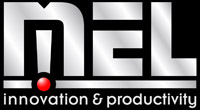
|



 Stimulus-responsive biomaterials are of significant interest as in vivo drug delivery systems. Such materials provide a means for controlled and long-term drug release as new treatments for a range of chronic diseases that require daily injections or precise doses of specific medications. Various materials systems investigated to date have exhibited response to heat, light, pH, enzymes, ultrasonic waves, and magnetic fields. While some interesting performance has been reported utilizing these stimulus methods, activation of these materials typically requires large or specialized equipment. In comparison, electric-field stimulus is much simpler to generate and control. Electrical signals have been shown to release molecules via conducting polymeric bulk materials or implantable electronic delivery devices, yet often require invasive surgery to implant and activate the devices. In order to implement electrically activated drug delivery, a technique is required that encapsulates the drug compound in a platform suitable for injection to a specific locale where the release can be triggered.
Stimulus-responsive biomaterials are of significant interest as in vivo drug delivery systems. Such materials provide a means for controlled and long-term drug release as new treatments for a range of chronic diseases that require daily injections or precise doses of specific medications. Various materials systems investigated to date have exhibited response to heat, light, pH, enzymes, ultrasonic waves, and magnetic fields. While some interesting performance has been reported utilizing these stimulus methods, activation of these materials typically requires large or specialized equipment. In comparison, electric-field stimulus is much simpler to generate and control. Electrical signals have been shown to release molecules via conducting polymeric bulk materials or implantable electronic delivery devices, yet often require invasive surgery to implant and activate the devices. In order to implement electrically activated drug delivery, a technique is required that encapsulates the drug compound in a platform suitable for injection to a specific locale where the release can be triggered.  20+ years of planting seeds -- now a crop of jobs is ready.
20+ years of planting seeds -- now a crop of jobs is ready. U.S. Sen. Sherrod Brown (D-OH), Airbus Americas Chairman Allan McArtor, and Lisa Novelli, President of the National Composite Center (NCC) announced the establishment of a new aerospace research and development consortium. The five-year agreement, announced today at NCC, is aimed at strengthening Ohio's aerospace industry and boosting economic development throughout the state. Brown, McArtor, and Novelli were joined by Lance Criscuolo of Zyvex Technologies, a company in Columbus that will develop and commercialize advanced materials for next generation Airbus aircraft.
U.S. Sen. Sherrod Brown (D-OH), Airbus Americas Chairman Allan McArtor, and Lisa Novelli, President of the National Composite Center (NCC) announced the establishment of a new aerospace research and development consortium. The five-year agreement, announced today at NCC, is aimed at strengthening Ohio's aerospace industry and boosting economic development throughout the state. Brown, McArtor, and Novelli were joined by Lance Criscuolo of Zyvex Technologies, a company in Columbus that will develop and commercialize advanced materials for next generation Airbus aircraft.











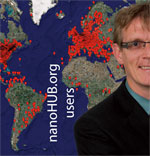 Mythbusting Scientific Knowledge Transfer:
Mythbusting Scientific Knowledge Transfer: 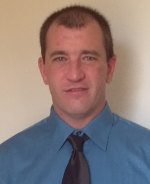 Infrastructure for a Connected World
Infrastructure for a Connected World



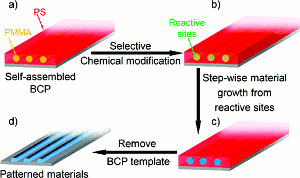 Nanostructured materials having well defined patterns over macroscopic length scales are of interest for a range of emerging applications in energy, sensing, nanomedicine, data storage, and electronics. Recently Peng et. al. have introduced a route to the formation of nanostructured materials by sequential infiltration synthesis (SIS). The SIS method uses BCP domains as a fixed template to control the nanofeatures of a range of materials by gas phase processes having controlled surface reactions similar to atomic layer deposition (ALD), a cyclic gas phase process for depositing thin films.
Nanostructured materials having well defined patterns over macroscopic length scales are of interest for a range of emerging applications in energy, sensing, nanomedicine, data storage, and electronics. Recently Peng et. al. have introduced a route to the formation of nanostructured materials by sequential infiltration synthesis (SIS). The SIS method uses BCP domains as a fixed template to control the nanofeatures of a range of materials by gas phase processes having controlled surface reactions similar to atomic layer deposition (ALD), a cyclic gas phase process for depositing thin films. 
